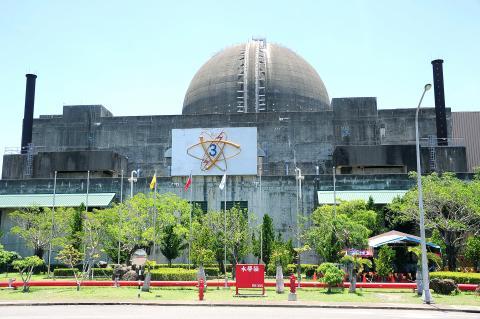The army is working to strengthen its sniper training to achieve greater kill rates in the event of war and is planning to use machine guns to help it achieve this goal, defense sources said yesterday.
The army has begun teaching the use of domestically-made T-74 and T-75 light machine guns as sniper or anti-materiel weapons.
A US-made .50 caliber heavy machine gun is also being considered for the same purpose.
It is seen as having the potential to be very effective against targets such as radar and command and control facilities.
An army officer, who spoke on condition of anonymity, said that, in the past, machine guns were used for killing large numbers of people and were not associated with precision strikes.
"The US military successfully used .50 caliber machine guns during last year's war against Iraq to neutralize enemy radar sites. The machine gun has been turned into a sniper weapon," the officer said.
Kim Huang (
"Machine guns were originally not designed for precision strikes. But with the addition of a scope and some modifications, machine guns can also be used as sniper weapons, though they are still not as good as professional ones," Huang said.
"Professional sniper weapons are very expensive. The military can not afford to buy these weapons in large quantities. So far, only the top special operations units have sniper weapons," Huang said.
"It's not a bad idea to turn machine guns into precision weapons. These weapons have a greater range than rifles," Huang said.
The army's main rifle, the T65-K2, has an effective range of only 300m.
The T-74 and T-75 light machine guns can hit targets that T65-K2s can't hit. They have an effective range of between 600m and 1,200m. The .50 heavy machine gun has a range of 2,000m.
The change in policy keeps the .50 caliber machine gun alive, which had become a less important piece of the military's equipment in recent years.
Over the past few years the army has put into service a large number of 40mm grenade rounds, which can be fired uninterruptedly from a T65-K2 rifle, just like a machine gun, and are seen as superior for inflicting mass casualties.
The .50 caliber machine gun used to the infantry's main air defense weapon. But the army has bought a considerable number of US-made Stinger air defense missiles. The .50 caliber machine gun, which had begun to look like a weapon on the verge of being outdated, is likely to take on new life.

A fugitive in a suspected cosmetic surgery fraud case today returned to Taiwan from Canada, after being wanted for six years. Internet celebrity Su Chen-tuan (蘇陳端), known as Lady Nai Nai (貴婦奈奈), and her former boyfriend, plastic surgeon Paul Huang (黃博健), allegedly defrauded clients and friends of about NT$1 billion (US$30.66 million). Su was put on a wanted list in 2019 when she lived in Toronto, Canada, after failing to respond to subpoenas and arrest warrants from the Taipei District Prosecutors’ Office. Su arrived at Taiwan Taoyuan International Airport at 5am today on an EVA Air flight accompanied by a

An essay competition jointly organized by a local writing society and a publisher affiliated with the Chinese Communist Party (CCP) might have contravened the Act Governing Relations Between the People of the Taiwan Area and the Mainland Area (臺灣地區與大陸地區人民關係條例), the Mainland Affairs Council (MAC) said on Thursday. “In this case, the partner organization is clearly an agency under the CCP’s Fujian Provincial Committee,” MAC Deputy Minister and spokesperson Liang Wen-chieh (梁文傑) said at a news briefing in Taipei. “It also involves bringing Taiwanese students to China with all-expenses-paid arrangements to attend award ceremonies and camps,” Liang said. Those two “characteristics” are typically sufficient

A magnitude 5.9 earthquake that struck about 33km off the coast of Hualien City was the "main shock" in a series of quakes in the area, with aftershocks expected over the next three days, the Central Weather Administration (CWA) said yesterday. Prior to the magnitude 5.9 quake shaking most of Taiwan at 6:53pm yesterday, six other earthquakes stronger than a magnitude of 4, starting with a magnitude 5.5 quake at 6:09pm, occurred in the area. CWA Seismological Center Director Wu Chien-fu (吳健富) confirmed that the quakes were all part of the same series and that the magnitude 5.5 temblor was

Restarting the No. 2 reactor at the Ma-anshan Nuclear Power Plant would take up to 18 months, Minister of Economic Affairs J.W. Kuo (郭智輝) said today. Kuo was answering questions during a meeting of the Legislative Yuan’s Economics Committee, where legislators are considering amendments to the Renewable Energy Development Act (再生能源發展條) amid concerns about the consequences of the Pingtung County reactor’s decommissioning scheduled for May 17. Its decommissioning is to mark the end of Taiwan’s nuclear power production. However, Chinese Nationalist Party (KMT) lawmakers have proposed an amendment to the Nuclear Reactor Facilities Regulation Act (核子反應器設施管制法) that would extend the life of existing